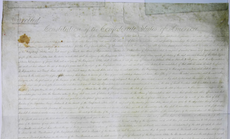| This article needs additional citations for verification. Please help improve this article by adding citations to reliable sources. Unsourced material may be challenged and removed. Find sources: "Walker Brooke" – news · newspapers · books · scholar · JSTOR (January 2025) (Learn how and when to remove this message) |
| Walker Brooke | |
|---|---|
 | |
| Deputy from Mississippi to the Provisional Congress of the Confederate States | |
| In office February 4, 1861 – February 17, 1862 | |
| Preceded by | New constituency |
| Succeeded by | Constituency abolished |
| United States Senator from Mississippi | |
| In office February 18, 1852 – March 3, 1853Serving with
| |
| Preceded by | Henry S. Foote |
| Succeeded by | Albert G. Brown |
| Member of the Mississippi Senate | |
| In office 1850–1852 | |
| Member of the Mississippi House of Representatives | |
| In office 1848 | |
| Personal details | |
| Born | (1813-12-25)December 25, 1813 Clarke County, Virginia, U.S. |
| Died | February 18, 1869(1869-02-18) (aged 55) Vicksburg, Fourth Military District, U.S. |
| Resting place | Cedar Hill Cemetery, Vicksburg, Mississippi |
| Political party | Democratic |
| Other political affiliations | Whig |
| Alma mater | University of Virginia |
Walker Brooke (December 25, 1813 – February 18, 1869) was an American politician who served as a Deputy from Mississippi to the Provisional Congress of the Confederate States from 1861 to 1862. He was also a U.S. Senator from 1852 to 1853, representing the state of Mississippi.
Biography
Born on December 25, 1813, in Clarke County, Virginia, Walker Brooke was the son of Humphrey Brooke and Sarah Walker Page. He attended the public schools in Richmond, Virginia and Georgetown, D.C. He graduated from the University of Virginia at Charlottesville in 1835, studied law, was admitted to the bar in 1838 and commenced practice in Lexington, Mississippi. He was a member of the Mississippi House of Representatives in 1848 and was a member of the Mississippi Senate in 1850 and 1852.
Brooke was elected as a Whig to the U.S. Senate to fill the vacancy caused by the resignation of Henry S. Foote and served from February 18, 1852, to March 3, 1853; he was not a candidate for reelection and resumed the practice of law. In 1857 he moved to Vicksburg and continued the practice of law; he was a delegate to the constitutional convention in 1861 and became affiliated with the Democratic Party that year. He was elected a member of the Provisional Congress of the Confederate States from Mississippi in 1861 and served one year; he was then appointed a member of the permanent military court of the Confederate States.
See also
External links
- United States Congress. "Walker Brooke (id: B000872)". Biographical Directory of the United States Congress.
- Walker Brooke at Find a Grave
| Offices and distinctions | |||||||||||||
|---|---|---|---|---|---|---|---|---|---|---|---|---|---|
| |||||||||||||
| Articles related to Walker Brooke | ||||||||||||||||||||||||||||||||||||||||||||||||||||
|---|---|---|---|---|---|---|---|---|---|---|---|---|---|---|---|---|---|---|---|---|---|---|---|---|---|---|---|---|---|---|---|---|---|---|---|---|---|---|---|---|---|---|---|---|---|---|---|---|---|---|---|---|
| ||||||||||||||||||||||||||||||||||||||||||||||||||||
- 1813 births
- 1869 deaths
- Deputies and delegates to the Provisional Congress of the Confederate States
- Members of the Mississippi House of Representatives
- Mississippi Democrats
- Mississippi lawyers
- Mississippi state senators
- Mississippi Whigs
- People from Clarke County, Virginia
- People from Lexington, Mississippi
- People of Mississippi in the American Civil War
- Signers of the Confederate States Constitution
- Signers of the Provisional Constitution of the Confederate States
- United States senators from Mississippi
- University of Virginia alumni
- Whig Party United States senators
- 19th-century American lawyers
- 19th-century United States senators
- 19th-century members of the Mississippi Legislature

